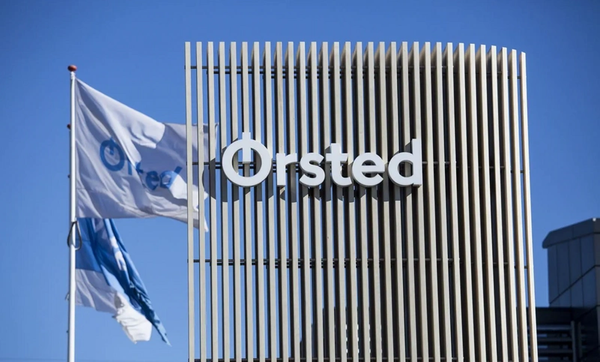
Ørsted on Monday warned that Russia's Gazprom Export could stop supplying gas to the Danish energy company because it has refused to pay in roubles, but such a move would not immediately put Denmark's gas supplies at risk.
Russia's rouble payment scheme has exposed cracks in the European Union's united response towards the Ukraine conflict, with some countries refusing to pay in roubles and others finding ways to comply.
"Gazprom Export continues to demand that Ørsted pays for gas supplies in roubles," Ørsted said in a statement. "We have no legal obligation under the contract to do so, and we have repeatedly informed Gazprom Export that we will not do so."
"There is a risk that Gazprom Export will stop supplying gas to Ørsted. In Ørsted’s view, this will be a breach of contract," it added.
There is no gas pipeline directly from Russia to Denmark, which means Moscow will not be able to directly halt supplies to the country.
The Danish Energy Agency said it would not have any immediate supply consequences for Denmark if Russia were to halt sales of gas to Ørsted.
The agency also said it had an emergency plan if there were to be any gas shortage. Ørsted said it expected it would be possible to buy gas on the European market.
"We have been preparing for this scenario to minimize the risk to Ørsted's gas customers, which are primarily major companies in Denmark and Sweden," the company said.
It was not clear whether supplies will be cut after Ørsted's payment deadline on May 31.
Gazprom did not immediately reply to a Reuters request for comment.
SUPPLIES CUT
Poland, Bulgaria, and Finland have refused to comply with Moscow's demand to change the payments method, and their gas supply has subsequently been cut off.
German, Italian and French companies have said they would engage with the rouble scheme to maintain supplies.
Under Russia's rouble payment system, buyers must deposit euros or dollars into a Gazprombank account, where the bank converts it into roubles.
Orsted has previously said its Gazprom contract accounts for the vast majority of Denmark's gas consumption and roughly 1.5% of total Russian supplies to Europe, which last year totaled around 155 billion cubic meters (bcm).
Orsted sold its oil and gas assets in 2017 to focus on offshore wind energy but retains a long-term gas deal with Russia's Gazprom which runs until 2030.
(Reporting by Stine Jacobsen; Editing by Toby Chopra and Jane Merriman)